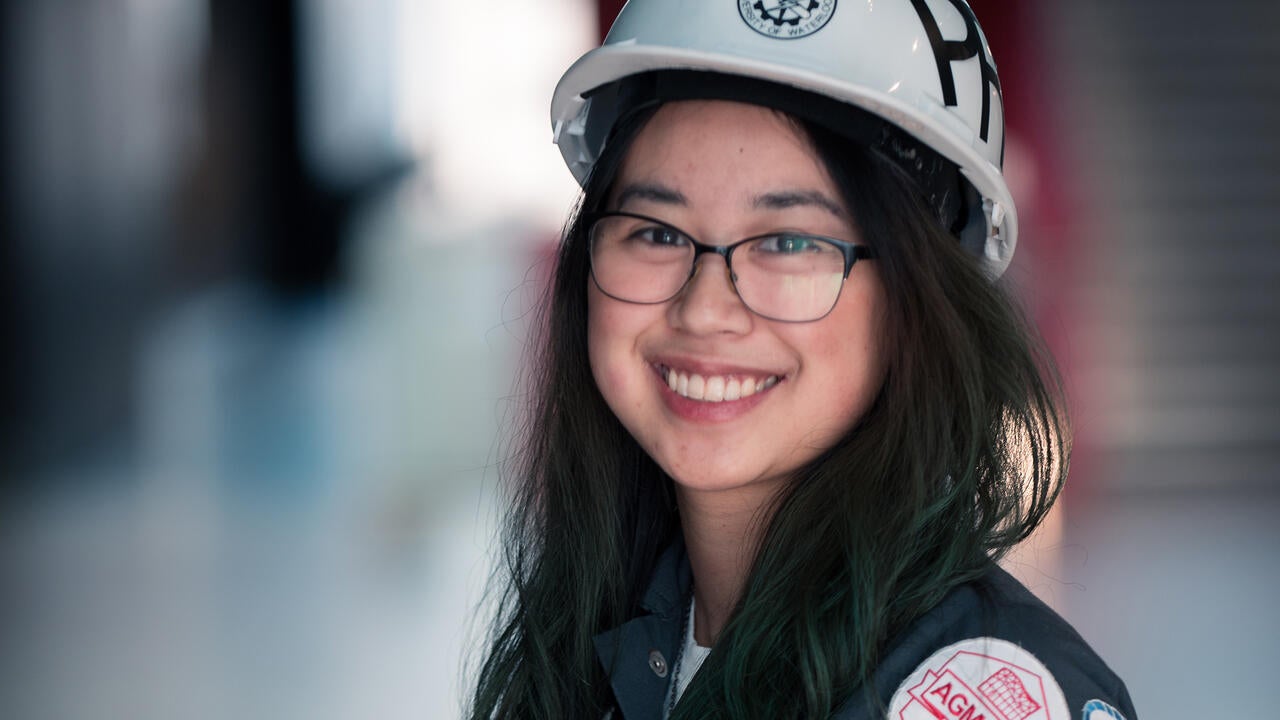
Engineering her future
Mariko Shimoda gives back to the University community while earning an engineering degree

Mariko Shimoda gives back to the University community while earning an engineering degree
By Carol Truemner Faculty of Engineering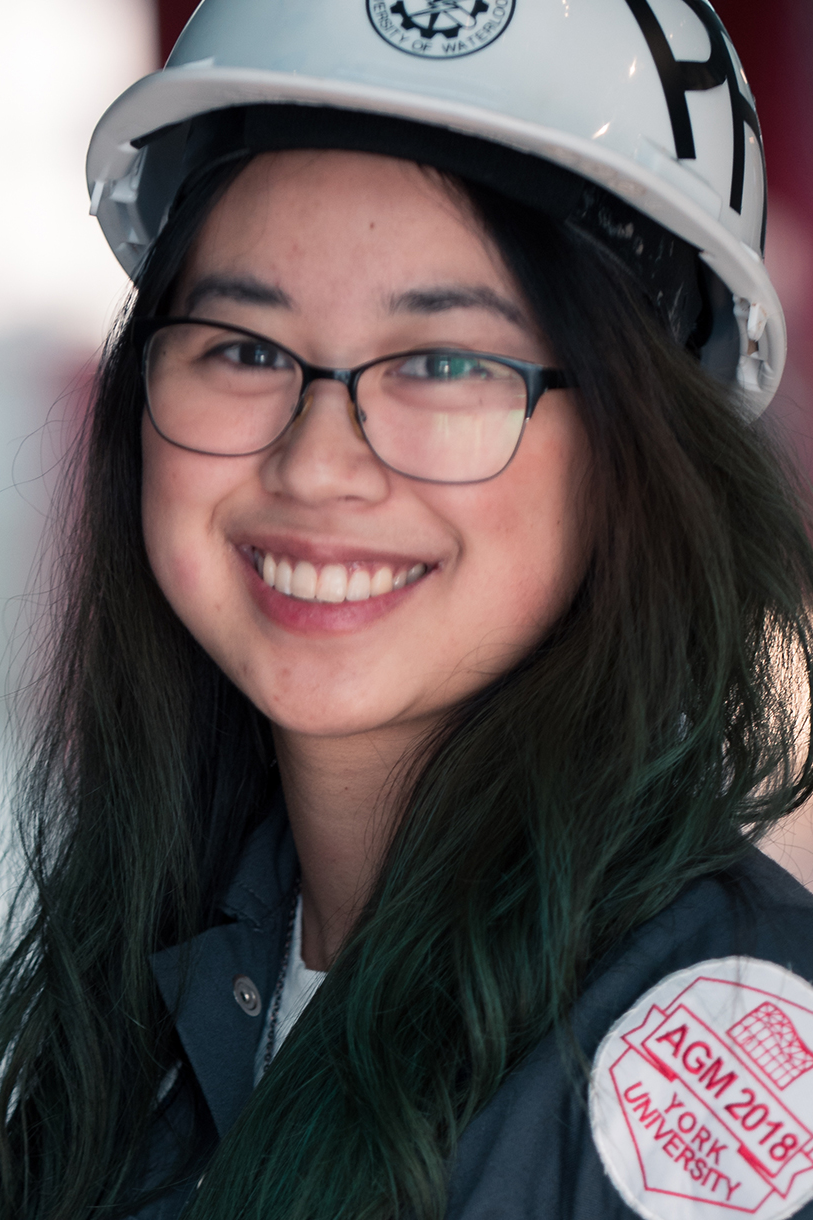
Mariko Shimoda
Faculty of Engineering (BASc '20)
Mariko Shimoda is officially graduating this week with a University of Waterloo engineering degree, a full-time position with the company she worked for during her last co-op term and invaluable experience gained from volunteering over the past five years.
The list of leadership roles Shimoda held throughout her mechanical engineering undergraduate program is as impressive as it is exhaustive.
Passionate about giving back to the University and community by volunteering, Shimoda was active with the Waterloo Undergraduate Student Association as the co-op and experiential affairs commissioner.
She was also the external director for the University’s Racial Advocacy for Inclusion, Solidarity and Equity (RAISE) group. Members work to address racism and xenophobia on the University of Waterloo campus.
“It’s a student-run group that is more important than ever right now and deserves recognition for its hard work,” she says.
Shimoda supported the Faculty of Engineering as an academic representative, serving as the voice of mechanical engineering students on a variety of academic issues, shadow day director, an engineering ambassador and a brand ambassador.
Throughout her undergraduate education, she held a variety of Engineering Society (EngSoc) positions including first-year commissioner, vice-president of student life and president of EngSoc, a role in which she represented 7,500 undergraduate students.

Mariko Shimoda with a friend attending the Toronto Pride Parade.
As an EngSoc executive member, she led outreach programs for elementary children at THEMUSEUM in Kitchener, helped the Food Bank of Waterloo Region and took part in the Toronto Pride Parade.
Committed to the well-being of her fellow students, she ran several mental health initiatives, wrote a mental health blog and developed a mental health resource guide for students located on EngSoc’s website.
“The guide is about how to navigate the mental health system at Waterloo,” she says. “It includes other information such as how you would go about seeing a psychiatrist, how you would go about asking your doctor about medication and how to find a therapist when you’re on co-op. All that sort of stuff.”
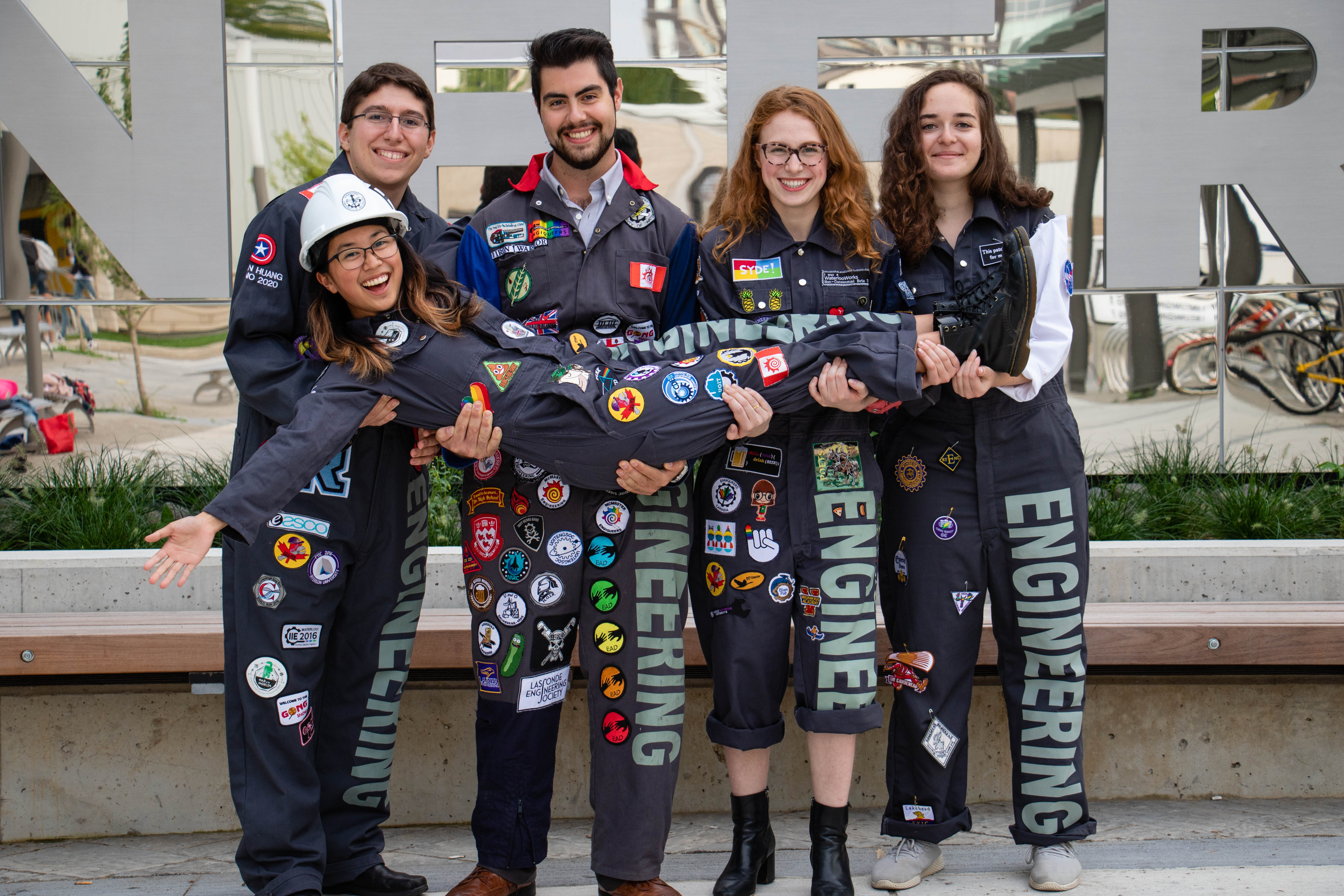
Mariko Shimoda with her fellow Engineering friends.
Her interest in becoming an engineer was sparked in Grade 11 when she attended Waterloo’s Women in Engineering (WiE) Catalyst Girls Conference designed to develop an interest in engineering by showcasing the variety of work and careers in the field.
While at the conference, she dissected an engine, used drill presses and designed bridges and pulley systems.
“That was when I decided okay, engineering is what I want to do,” Shimoda says.
Shimoda volunteered for WiE in Grade 12 and became a member when she began her engineering degree. As part of WiE, she encouraged young girls to get involved in science, technology, engineering and mathematics (STEM) through its programs.
She served as a community peer leader at WiE’s Living-Learning Community located at St. Paul's University College that provides transitional, social and academic support and guidance for first-year engineering students who identify as female.
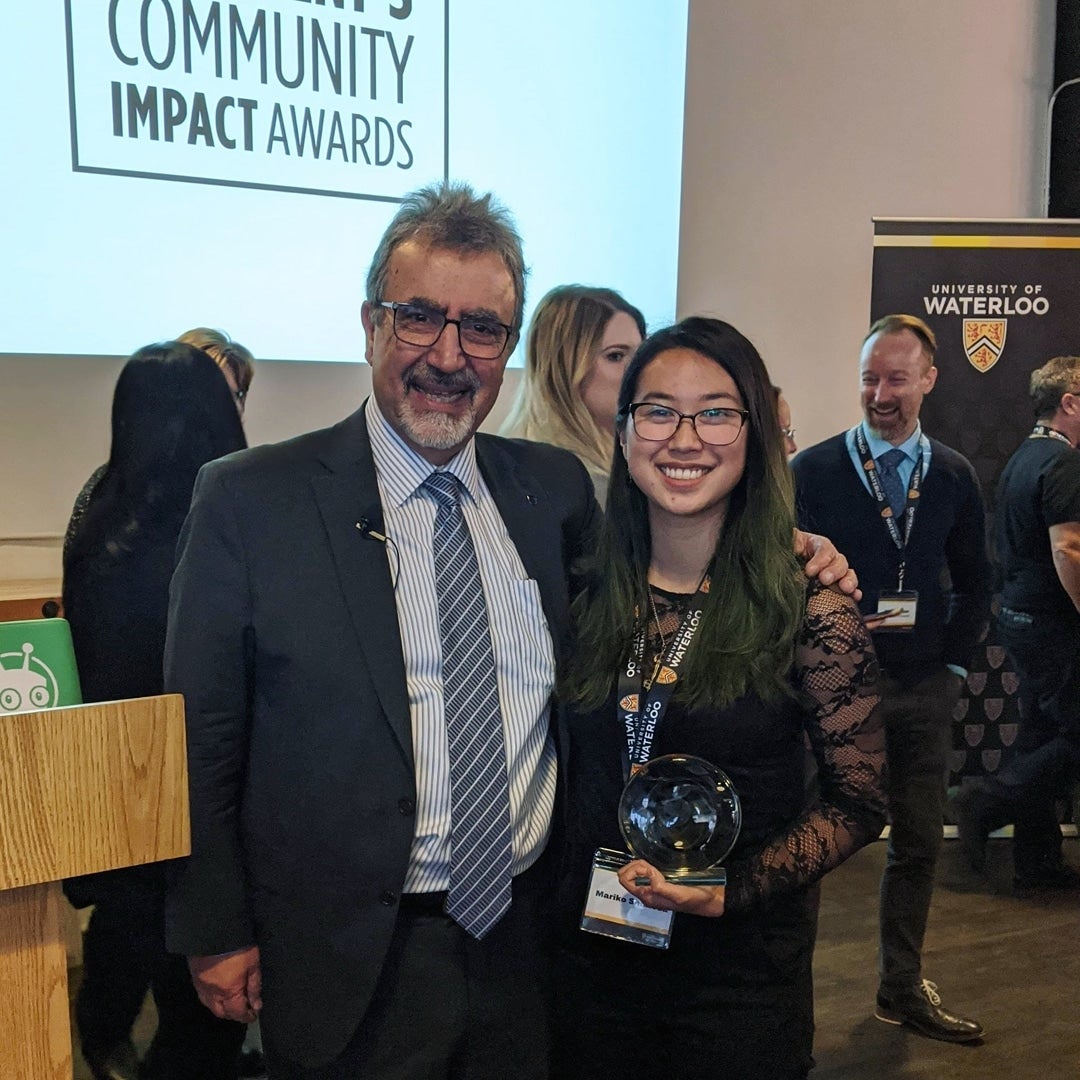
Mariko Shimoda with Feridun Hamdullahpur, President and Vice-Chancellor, after receiving one of two Community Leader awards through the President's Community Impact Awards Initiative.
Last fall, Shimoda received one of two Community Leader awards through the President’s Community Impact Awards initiative.
The awards recognize individuals or teams of community members, students, faculty or staff who embody the University’s spirit of innovation and contribute to making Waterloo Region strong and prosperous.
“At Waterloo, it’s easy to think we’re all students going to school, but at the end of the day we’re part of the larger community,” she says. “And I think if you can give back, it’s great because you become more connected to the people living in the city.”
Next month, Shimoda begins a full-time job at Kitchener-based Clearpath Robotics as its client success program manager. She spent her last co-op work term at the company founded by four Waterloo Engineering alumni.
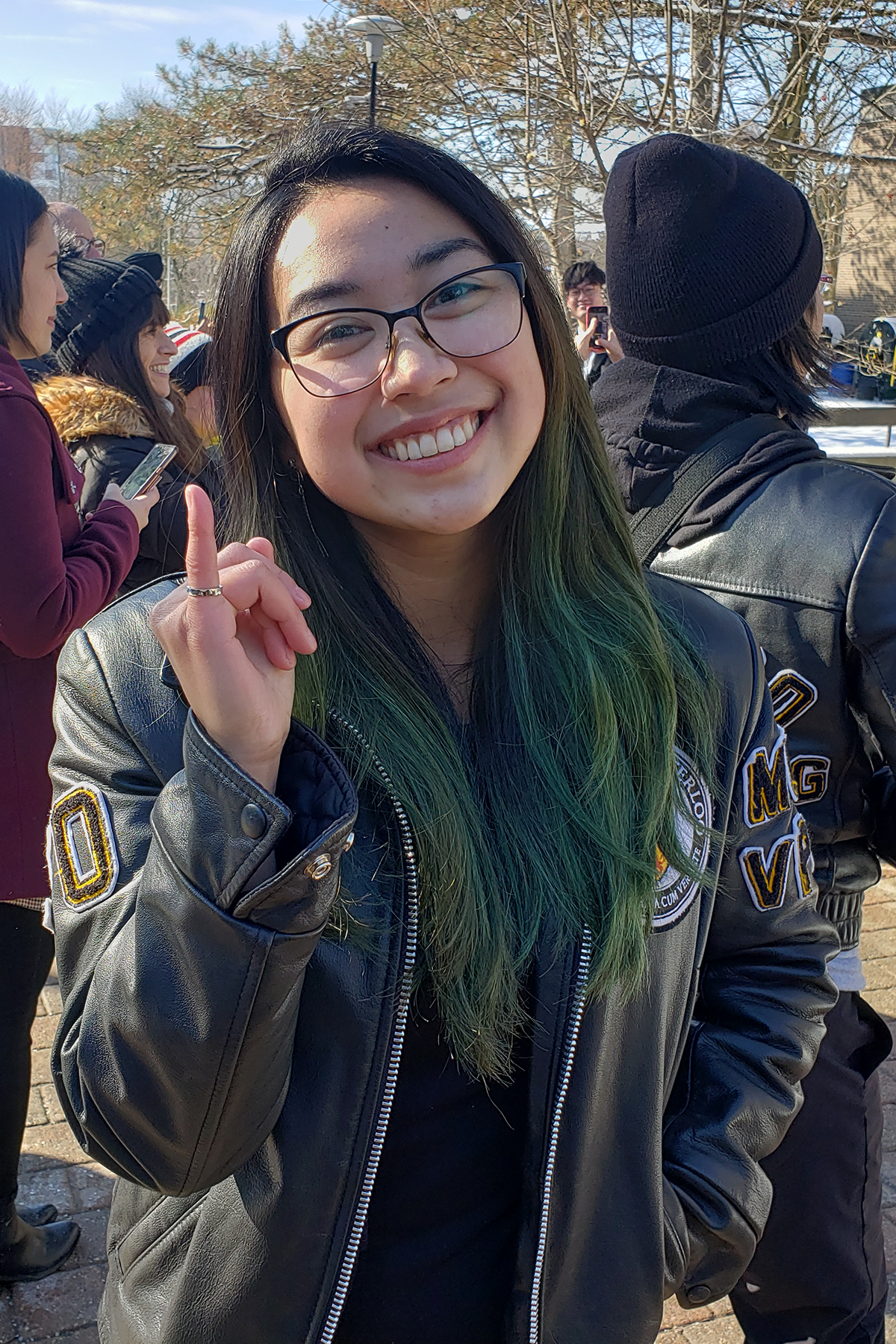
Mariko Shimoda proudly showing off her Iron ring at the "Ritual of the Calling of an Engineer" ceremony.
Shimoda is grateful to have taken part in Waterloo Engineering’s iron ring ceremony held this past February before the COVID-19 pandemic closed the campus and is now over the initial disappointment she felt when his spring’s traditional convocation ceremony was cancelled.
“My journey and my classmates’ journey at Waterloo may be done, but there is so much more that each of us can do in the world to make a difference,” she says. And I’m sure it’s not the last time my classmates will see each other. There’s always reunion and other events.”

Read more
Graduating AHS student Lindsay Eberlin reflects on her time as a Waterloo student

Read more
Graduating into a post-pandemic world sharpens Kiera McMaster’s focus to make it better
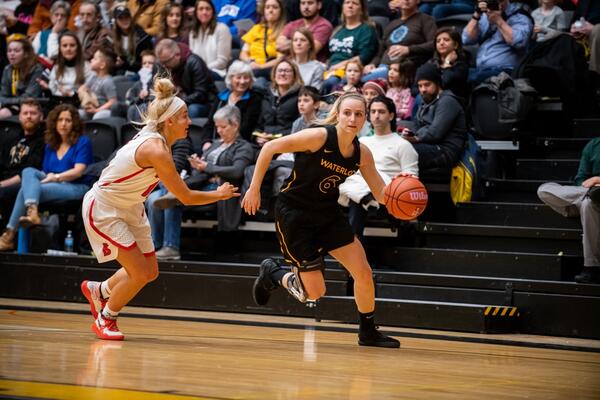
Read more
Just like sporting events on campus, Convocation has always been about bringing the Waterloo community together to celebrate milestones and achievements
The University of Waterloo acknowledges that much of our work takes place on the traditional territory of the Neutral, Anishinaabeg, and Haudenosaunee peoples. Our main campus is situated on the Haldimand Tract, the land granted to the Six Nations that includes six miles on each side of the Grand River. Our active work toward reconciliation takes place across our campuses through research, learning, teaching, and community building, and is co-ordinated within the Office of Indigenous Relations.